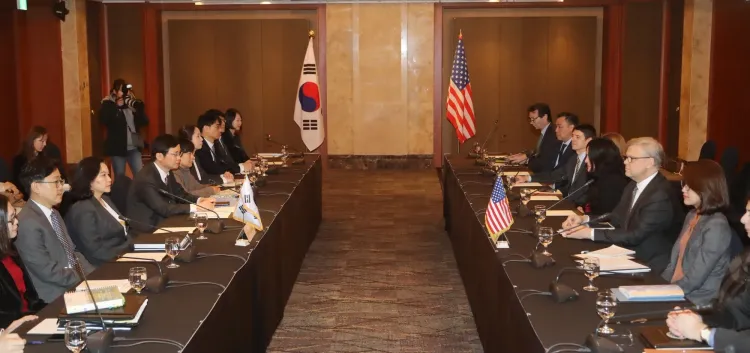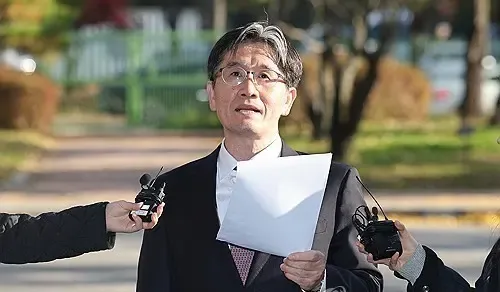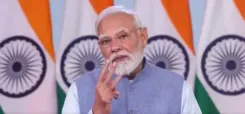Limited Effects of Trump's 'Reciprocal' Tariffs on South Korea Due to Free Trade Agreement

Synopsis
Key Takeaways
- Choi Sang-mok believes Trump's tariffs will have minimal impact.
- South Korea's trade surplus with the U.S. was $55.7 billion.
- Tariff rates on U.S. imports are low due to the FTA.
- Manufactured goods tariffs from the U.S. are at zero percent.
- Economic uncertainties are rising both domestically and globally.
Seoul, Feb 14 (NationPress) Acting President Choi Sang-mok stated on Friday that the repercussions of U.S. President Donald Trump's recent 'reciprocal' tariffs are unlikely to have a major impact on South Korea's economy, while highlighting the necessity for ongoing vigilance.
On Thursday (U.S. time), Trump signed a presidential memorandum detailing an extensive strategy to impose tariffs specific to countries that are significant trading partners of the U.S., raising alarms here as South Korea's trade surplus with the U.S. reached $55.7 billion last year.
During a discussion with government officials concerning economic matters, Choi remarked that the repercussions of the latest U.S. policy might be minimal, owing to the low tariff rates South Korea imposes on U.S. exports as per the nations' bilateral free trade agreement (FTA), as reported by Yonhap news agency.
According to the FTA, the average tariff rate on imports from the U.S. was recorded at 0.79 percent as of 2024, with the rate further reduced when accounting for refunds, the finance ministry noted. This rate is anticipated to decrease further this year in line with the annual tariff reduction strategy.
The ministry mentioned that the tariff rate on manufactured goods imported from the U.S. is already at zero percent.
Nevertheless, the acting president underscored the necessity of careful monitoring, given that the U.S. is likely to evaluate not just tariffs but also non-tariff barriers, including value-added taxes and digital service taxes.
In response, Choi directed the relevant ministries to form a task force tasked with thoroughly evaluating the nation's vulnerabilities and non-tariff barriers, and to prepare documentation to clarify the country's stance to U.S. officials.
Meanwhile, the South Korean economy is experiencing 'increasing downward pressure' due to rising uncertainties both domestically and globally, which is dampening economic sentiment amidst a slowdown in domestic demand recovery and employment, according to the finance ministry on Friday.
In its monthly economic report, the Green Book, the Ministry of Economy and Finance indicated downward pressure for the third consecutive month, attributing it to domestic political uncertainties and an intensifying global trade war sparked by U.S. tariff strategies.
'The global economy continues to encounter geopolitical risks, with escalating trade uncertainties arising from the enforcement of significant tariff measures,' the report stated. Since assuming office last month, U.S. President Trump has intensified tariffs on key trading partners.
This latest evaluation builds upon the December report, in which the ministry first acknowledged downward pressure following President Yoon Suk Yeol's brief declaration of martial law on December 3.









